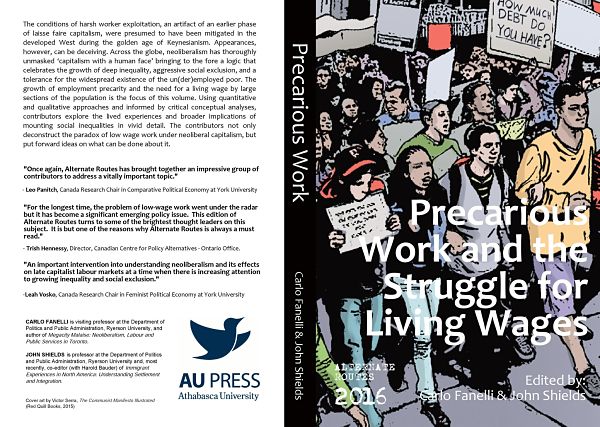Challenging the Low Wage Economy: Living and Other Wages
Abstract
The existence of a low wage sector is nothing new, nor are
efforts to resist the conditions experienced by people whose incomes
typically fall below the poverty line. In recent decades, under the rubric of
neoliberalism structural and political factors in many western states have
combined to expand the low wage sector. In policy terms this is
represented by intensified efforts to flexibilize the labour market and to
impose conditionality for the receipt of social benefits. Various social and
political forces have pushed for policies to address issues of low wages and
poverty. The paper recognizes the intersection of social and labour market
policies but focuses on the latter. It opens with an historical overview of
efforts to address low wages that touches on sectoral councils in the U.K,
and the Awards system in Australia. It then moves on to analyze
contemporary minimum wage policy and campaigns for a living wage. We
then turn to the discourses/argumentation associated with these
initiatives, and those employed by opposition to them. Our goal is to
understand and evaluate the arguments advanced but move beyond
discourse to identify the conditions in which particular means of
addressing low wages can succeed.
Downloads
How to Cite
Issue
Section
License
Articles are published in Alternate Routes: A Journal of Critical Social Research under the Creative Commons "Attribution/Non-Commercial/No Derivative Works" Canada licence.
The copyright for the articles published in this journal is retained by the authors, with first publication rights granted to the journal. By virtue of their appearance in this open access journal, articles may be used, with proper attribution, in educational and other non-commercial, not-for-profit settings. The submission of a manuscript to Alternate Routes will be taken to mean that the author understands and agrees to the following:
- the manuscript represents original work not previously published;
- the manuscript is not being considered elsewhere for publication in the same language (publication elsewhere in an alternate language does not preclude acceptance of submission to Alternate Routes);
- appropriate written copyright permissions have been secured for republication of any copyrighted material contained in the manuscript;
- copyright for this article is retained by the author, with first publication rights granted to Alternate Routes;
- by virtue of its appearance in this open access journal, it is understood that the article is freely available for use, with proper attribution, for educational and other non-commercial purposes;
- reuse of the article for commercial purposes by anyone other than the author requires permission of the author;
- the author agrees to cite Alternate Routes as a source whenever h/she later republishes or reuses the article in other platforms.


